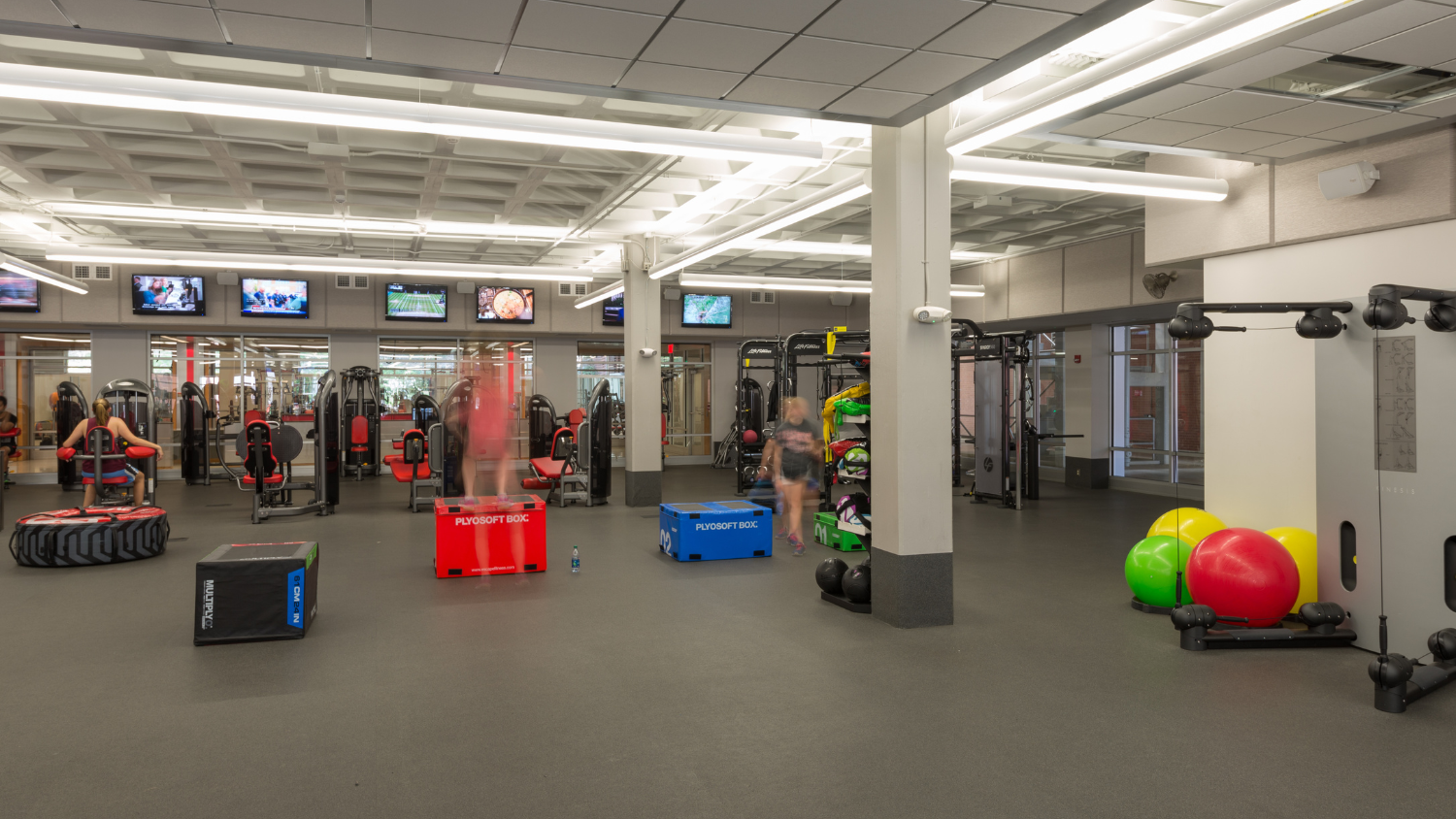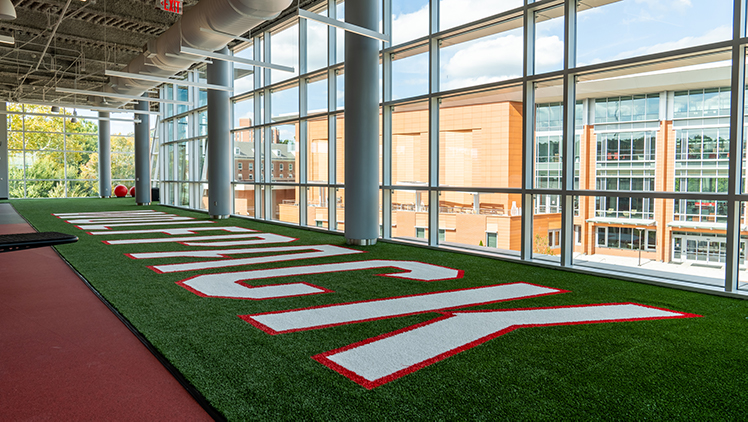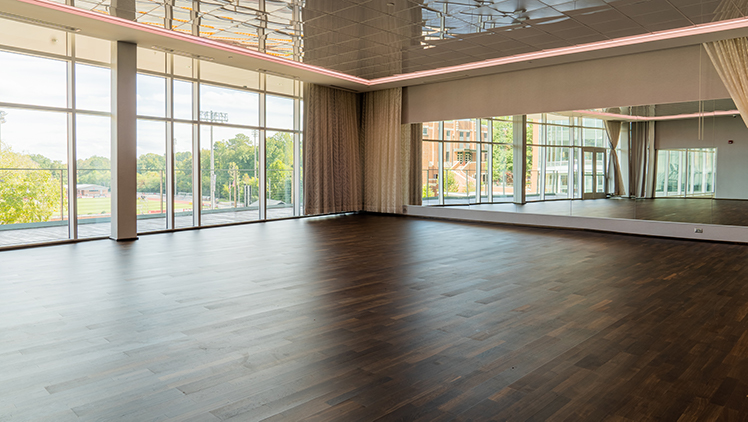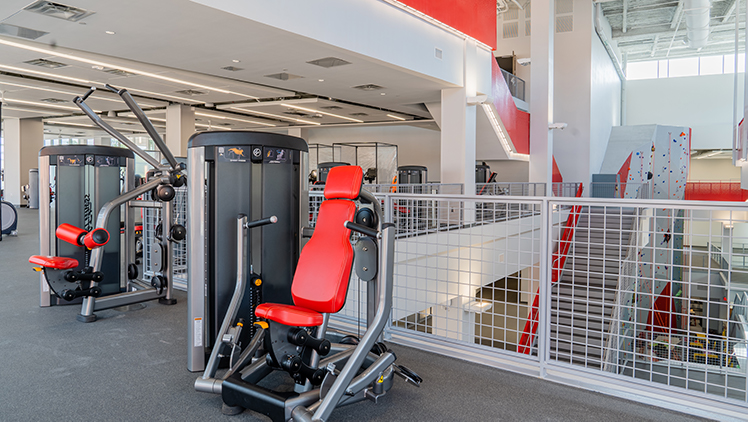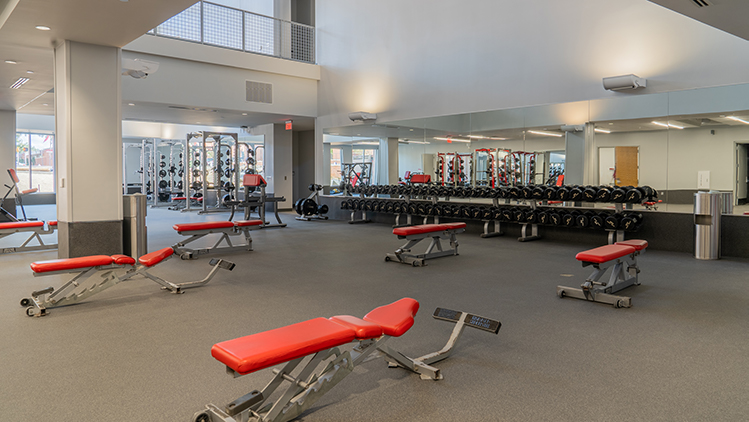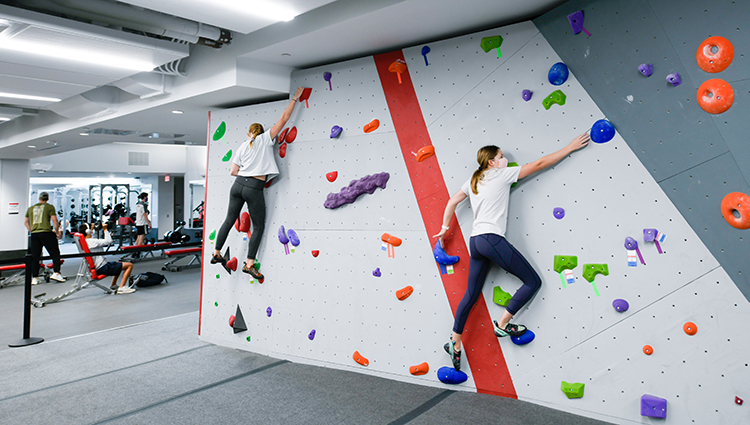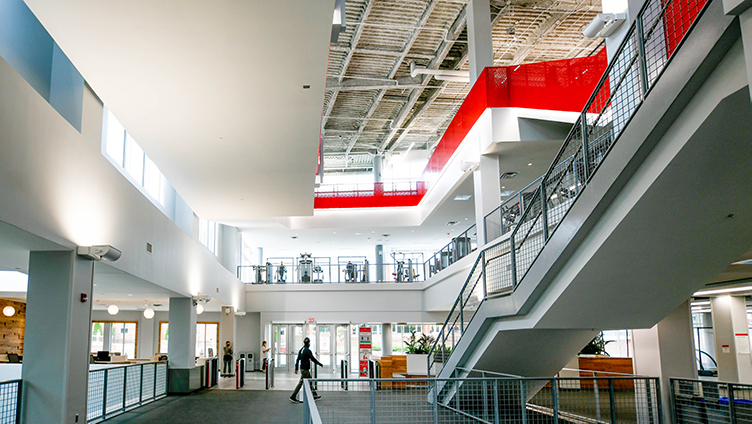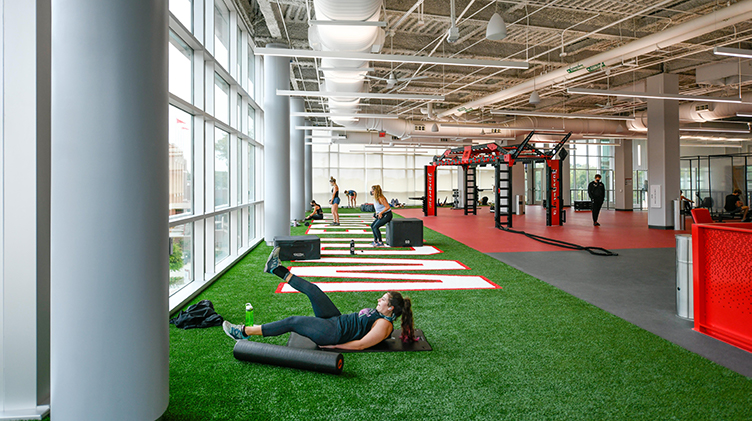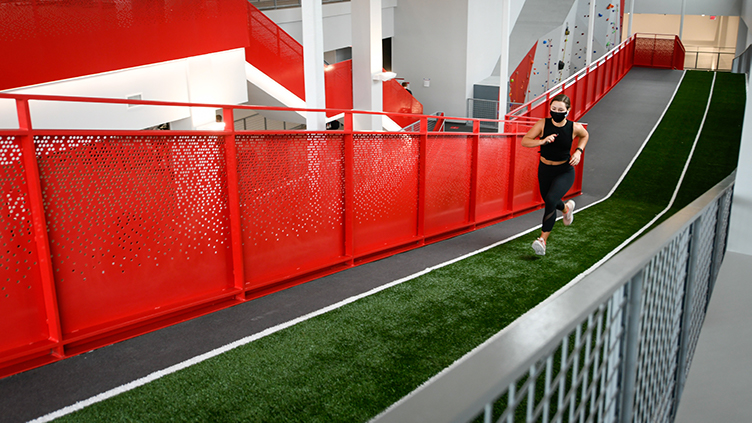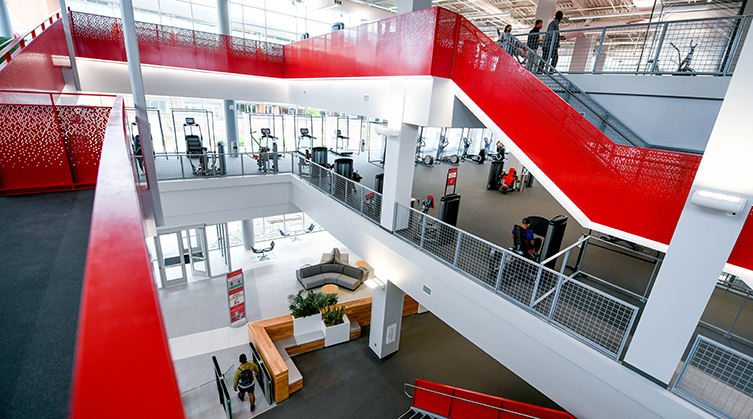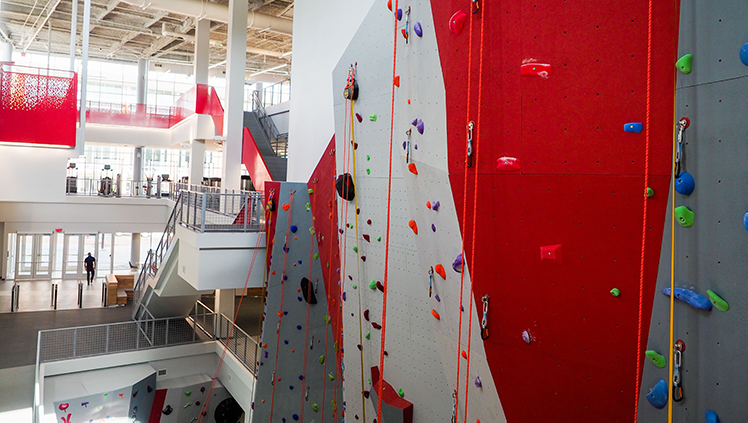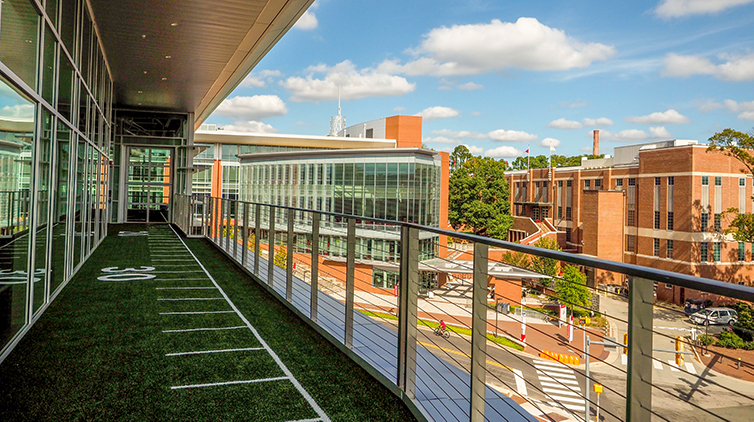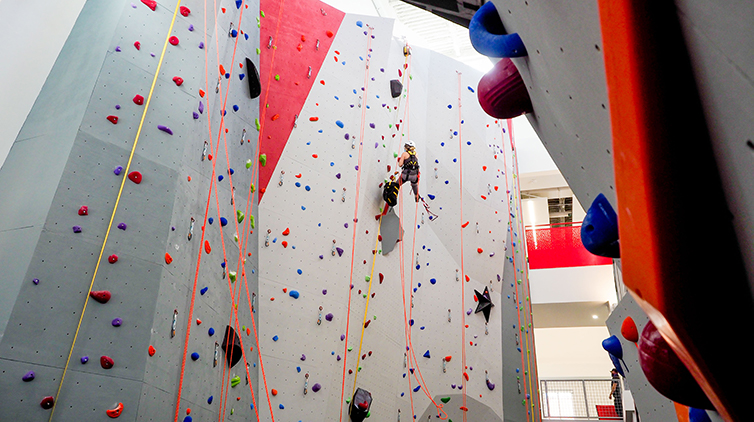Facility Master Plan
The Future of Wellness and Recreation
This page was developed to provide the most accurate and up-to-date information about the Recreational Sports Master Plan to expand the fitness and wellness space at NC State to better meet the needs and demands of the campus community.
In fall 2010, NC State engaged a team of strategic facility planners and architects to guide the university’s development of a Recreational Sports Master Plan to assess and address the demand for indoor and outdoor recreation space over the next 20 years. The planning process resulted in an implementation strategy that maximizes the use of existing facilities before recommending new space be constructed. Data was collected via strategic asset valuation; focus groups with students, faculty, staff and affiliates; competitive context analysis; web-based survey; and demand projections.
In 2014, a Financial Analysis and Capital Improvement Plan was completed to revise financial assumptions and refresh the prioritization of the previously identified capital projects and adjust for NC State’s future debt capacity outlook and the University Physical Master Plan. The current Recreational Sports Master Plan includes eight projects with comprehensive financial modeling.
Wellness and Recreation Impact and Facility Usage
- More than 25,000 NC State students participate in Wellness and Recreation, including 62.6 percent of all Recreational Sports Fee paying students.
- 882,978 visits to the Wellness and Recreation Center and Carmichael Gym in 2021-22
- 89 percent of students living on-campus participated in Wellness and Recreation programs and services.
- Studies continue to show participation in university recreation and wellness centers are linked to student success, satisfaction, recruitment and retention
- Wellness and Recreation will continue to play an important role in the health and wellness of students by reducing stress, anxiety and depression through physical activity and exercise
- Employing more than 650 students, Wellness and Recreation is one of the largest employers of students on campus, with more than $1.4 million of student fees returned to students via wages annually
Master Plan Projects in the Press
- January 14, 2016 | Carmichael Gym renovations to open next Tuesday
- October 6, 2015 | Carmichael Gym fee doesn’t go the distance
- September 30, 2015 | Student Senate votes to add $47.50 fee for gym renovations
- September 29, 2015 | Carmichael gym fee to increase
- August 19, 2015 | Fear not gym bros — Carmichael still offers lots
- March 5, 2015 | Fee increase to fund 25 years of gym upgrades
- March 5, 2015 | A look at the fitness of the Pack
- October 19, 2019 | Mind and Body
- June 25, 2020 | Same Campus, New Look
- December 17, 2020 | Wide Open Spaces
- September 28, 2023 | Wellness and Recreation indoor courts to get game-changing renovation
Master Plan Projects
| Projects | Completion |
|---|---|
| Gym Entrance and Fitness Center Renovation | Completed 2012 |
| Locker Room Renovation and Fitness Center Expansion | Completed Spring 2016 |
| Wellness and Recreation Center | Completed Fall 2020 |
| Lower Miller Turf and Field House | TBD |
| Centennial Campus Recreation Center | TBD |
| Centennial Campus Recreation Fields | TBD |
| Rec Fields at Varsity Drive | TBD |
| Centennial Campus Boathouse | TBD |
Locker Room Renovation and Fitness Center Expansion
Completed in August 2016, the Locker Room Renovation and Fitness Center Expansion project continued to transform the Carmichael Gymnasium. Through re-purposing an underutilized and inefficient men’s locker room, the project successfully added approximately 6,000 square feet of dedicated fitness center space (cardiovascular, strength and functional training) to help meet student and member demand. The women’s and men’s locker rooms were renovated to provide a “health club-style” look and feel to meet today’s student expectations. The $7.6 million project also addressed several accessibility and code deficiencies.
Wellness and Recreation Center
Since 1961, the Carmichael Gymnasium has met the recreation, fitness, physical education and wellness needs of the Wolfpack community. This storied space has evolved with an expansion in 1987 (Carmichael Gym West), the Recreation Center in 2007, renovation of locker rooms and fitness areas in 2016 and most recently the 2020 Wellness and Recreation Center that connects the facilities together.
Project Information
Timeline
| September 2015 | Student leaders, Wellness and Recreation staff and University administrators worked collaboratively to examine, debate and recommend the best approach to proceed with the project and related indebtedness fee. |
| September 30, 2015 | Student Government passed a resolution to support the indebtedness fee of $92.50 ($47.50 increase) to fund the 82,823 sq. ft. project. |
| October 13, 2015 | Student Government and Wellness and Recreation leaders presented the project to the Fee Review Committee. Fee Review Committee unanimously voted to approve the project as proposed by the Student Senate resolution. |
| November 12, 2015 | Chancellor Woodson and Fee Review Committee recommendation presented to NC State Board of Trustees University Affairs Committee for consideration. |
| November 13, 2015 | NC State Board of Trustees unanimously approved the project and made recommendations to the University of North Carolina Board of Governors (BOG) for consideration. |
| January 21, 2016 | Chancellor Woodson presented the project to BOG Committee on Budget and Finance. |
| April 15, 2016 | Board of Governors approves the project and votes on Tuition and Fees for the 2016-17 year. |
| July 2016 | State budget approved. |
| August – September 2016 | Architect selection process. |
| October 2016 | CRA Architects and HOK Architects selected to lead design of project. |
| Fall 2016 – Fall 2017 | Design |
| June 2018 – Summer 2020 | Construction |
| Fall 2020 | Facility Open |
Financial Strategy
Throughout the master planning process, it was important to develop a strategy that minimized the financial impact of all new facility projects on student fees.
The Wellness and Recreation Center capital debt fee was implemented Fall 2016 when the $45 per year Recreation Center capital debt fee was paid in full. The new $92.50 per year fee resulted in an increase of $47.50 in capital debt fees to fund the project.
In Fall 2015, Wellness and Recreation staff and student leaders worked collaboratively to prepare a formal recommendation to the Fee Review Committee.
On September 30, 2015, the Student Government Senate passed the Carmichael Addition and Renovation Fee Act supporting the indebtedness fee of $92.50 ($47.50 increase) that will fund the 82,823 sq. ft. project starting 2016-17. The support of the indebtedness fee is contingent upon the Division of Academic and Student Affairs agreeing to the following:
- Students will be involved in every step of the planning and completion of the project
- Reductions in the cost of the project due to changing interest rates, fundraising efforts, reduction of project scope or any other reason will be passed on to students in the form of the reduction of the student fee for the remainder of the fee’s term.
- The cost of membership for non-student members of Carmichael Complex is increased to equal the cost of student fees, including indebtedness fees, paid to Wellness and Recreation once the project is completed.
The indebtedness fee of $92.50 ($47.50 increase) to fund the 82,823 sq. ft. project was presented to the Fee Review Committee in October 2015.
Background
Visioning Sessions and Carmichael BIG IDEAS Survey
On November 9, 2016, NC State and the project architects hosted four visioning sessions with students, faculty, staff and others to solicit ideas and feedback about the Carmichael Addition and Renovation Project (Wellness and Recreation Center).
In advance of the visioning sessions, the Carmichael BIG IDEAS survey was shared to more than 10,000 students, faculty, staff, alumni, retirees and more to solicit additional ideas and feedback.
Student Voices Shaping the Project | How We Got Here
In Spring 2015, NC State hired HOK Architects, a leading collegiate recreation and wellness architecture firm to review, verify and update the project space planning assumptions and student needs.
During this study, Wellness and Recreation staff informed, engaged and invited the campus community to participate in project visioning sessions facilitated by the architects in February 2015. Wellness and Recreation staff presented the project to the Student Senate, President Roundtable, University Graduate Student Association, Inter-Residence Council, Wellness and Recreation Advisory Board and other student leadership organizations requesting their participation and feedback in visioning sessions. Through these sessions and meetings with campus stakeholders renderings and project funding options were developed.
Click here for complete HOK Carmichael Complex Addition and Renovation Study.
Visioning | Spring 2015
- The Wellness and Recreation Center project will shape the future of wellness and well-being on campus by unifying, celebrating and inspiring active lifestyles of NC State students, faculty, and staff.
- The success of the project begins with a clear primary entry that is inviting and inspiring. It must strive to unify the fitness space, increase visual access to destinations, and amplify street presence. The solution must be accessible, sensible, smart, sensitive to student fees and attentive to student safety.
Recreation and Wellness Survey | Spring 2015
The NASPA Recreation and Wellness benchmark survey was administered to 7,500 NC State students (20% response rate) in February 2015.
- 92% of students identified that improved recreation and fitness facilities are a “medium to high” priority in the next 5-10 years at NC State University.
- 71% of students determined that it would be “moderately to very helpful” toward their personal well-being to have access to health and wellness resources in one location (e.g., nutrition, physical activity, counseling services, career, financial).
View the complete 2015 Recreation and Wellness Survey results.
Frequently Asked Questions
How does the Wellness and Recreation Center impact the NC State student experience?
- As the home of Wellness and Recreation and Health and Exercise Studies, the Wellness and Recreation Center and Carmichael Gym sees more than 1.12 million visits annually.
- During a typical year, more than 80% of undergraduates and 50% of graduate students used the facilities.
- Employing more than 750 students, Wellness and Recreation is one of the largest employers of students on-campus with more than $1.4 million dollars of student fees returned to students via wages annually.
- Studies continue to show participation in university recreation and wellness centers is linked to student success, satisfaction, recruitment and retention.
- Wellness and Recreation will continue to play an important role in the health and wellness of students by reducing stress, anxiety and depression through physical activity and exercise.
What other funding sources are available?
Wellness and Recreation and the Division of Academic and Student Affairs will actively seek additional funding sources working with NC State University Development. Should additional funding become available, these gifts and donations will reduce student fees.
How long will the debt service fee stay in effect?
Similar to a home mortgage, the debt service fee will be in effect for 25 years.









